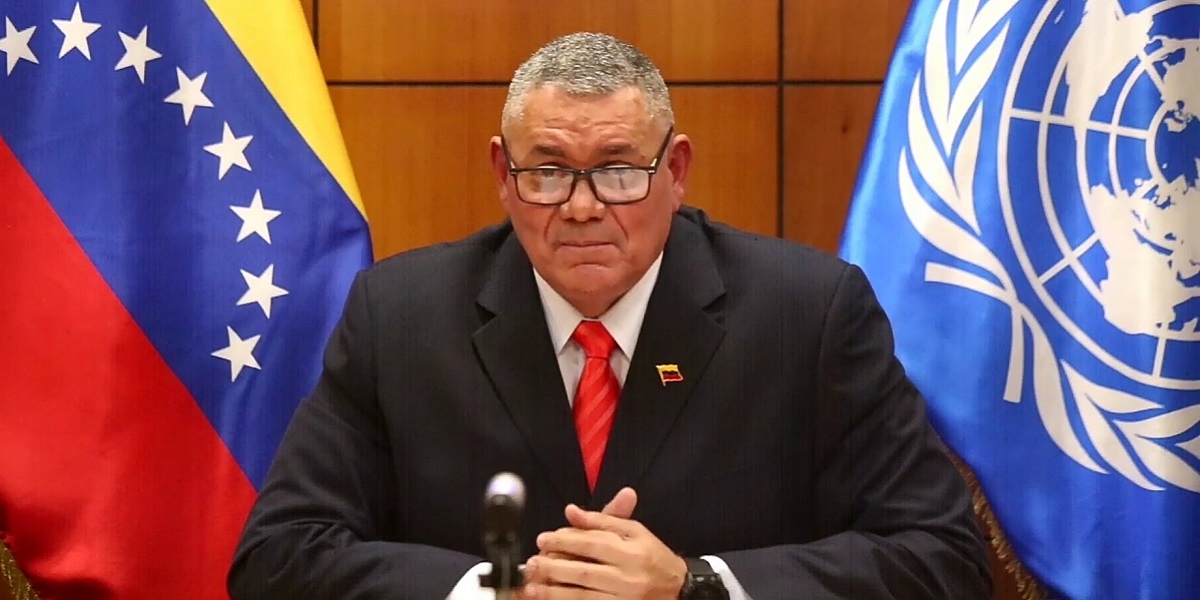The Minister of People’s Power for Food, Carlos Leal Tellería, reaffirmed on Tuesday the commitment of the Bolivarian Republic of Venezuela to the United Nations Sustainable Development Goals (SDGs) and highlighted the creation of a food security model aimed at guaranteeing food as a human right as it is enshrined in the Venezuelan Constitution.
In his statement at the 42nd Session of the FAO Conference, the Venezuelan minister stressed that the model of equality and justice promoted in Venezuela “is the foundation of the Republic’s strategy against hunger and malnutrition, which affect over 50% of the world’s population.”
In this regard, Leal Tellería recalled that in 2015, the undernourished population in the South American country was reduced to less than 5%, and Venezuela was recognized by FAO as a nation with high food security.
Notwithstanding, he said there is a campaign of systematic aggression promoted by the U.S. Government and its allies against the right to food of the Venezuelan people.
“Even amid the COVID-19 pandemic, they have used persecution, extortion and blockades to prevent Venezuela from accessing essential resources, goods and services to meet the need of the population,” said the Venezuelan minister, referring to the devastating impact of unilateral coercive measures, also promoted by the United States, and expressing that the damage caused by these illegal measures represents crimes against humanity,
“These measures have caused an 83.7% drop in food imports, thus preventing us from procuring raw material, finished products and supplies for agricultural production, and threatening with sanctions most international, domestic food companies that supply Venezuela,” said Leal Tellería in his statement.
The Venezuelan food minister reaffirmed the principles of the Rio Declaration on the Environment and Development, and requested FAO’s mediation for the lifting of the economic blockade and unilateral coercive measures, which have been described as “violations of the international law and other provisions aiming to avoid the use of food as an instrument for war, destabilization and destruction.”
New Boost of Food Sovereignty
The Venezuelan food minister pointed out that despite the U.S. attacks, the Grand Mission Agro Venezuela received a new boost “as an important state policy and strategy to increase domestic production and the availability of food by implementing good practices aimed at the preservation of the environment.”
Likewise, Leal Tellería extolled the efforts of the Bolivarian Government to maintain the food social programs and protect the Venezuelan people, and the creation of 36,315 Local Food Supply and Production Committees (CLAPs) that reach over 74% of the country’s families, as well as the Food Scholl Program (FAE) to ensure food access to 80% of children and adolescents in school.
Furthermore, he mentioned the Food Houses program, which serves monthly “more than 700,000 people in vulnerable situation through 3,679 soup kitchens and provides specialized nutrition assistance to children, pregnant and breastfeeding mothers, thus fostering healthy food habits and breastfeeding,” explained Leal Tellería.
“The Bolivarian Republic of Venezuela is convinced that only through cooperation, solidarity and complementarity, we can move towards sustainable agri-food models based on meeting the needs of the people, the preservation of Mother Earth and fighting the mercantilist interest associated to food of the capitalist model,” said the Venezuelan food minister.



